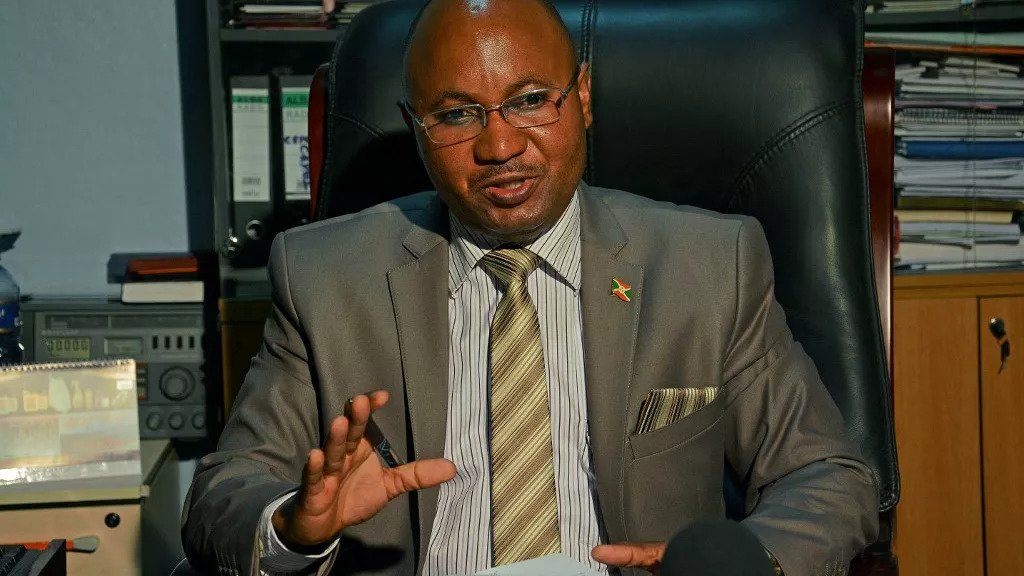
STRINGER/AFP
By Rédaction Africanews with AFP
A former all-powerful prime minister of Burundi, Alain-Guillaume Bunyoni, appeared in court on Monday, where he is accused of undermining national security and insulting the president, witnesses and a judicial source reported.
“Everyone was surprised to see him,” said a witness on condition of anonymity, specifying that the accused wore the green uniform of prisoners in Burundi.
During the hearing, his pre-trial detention in Ngozi prison, in the north of the country, was extended, a judicial source told AFP, requesting anonymity to discuss the case.
The former prime minister, arrested last month in the capital Bujumbura, was formally charged on Friday by three high court judges sitting behind closed doors, the source said.
He is accused of “undermining the internal security of the state, undermining the proper functioning of the national economy, and personal enrichment”, according to court documents that AFP was able to consult. He is also accused of illegal possession of weapons and insulting the president.
Alain-Guillaume Bunyoni , who had served as Prime Minister since June 2020, was removed from office on September 7 by President Evariste Ndayishimiye and replaced by Interior Minister Gervais Ndirakobuca.
Five days earlier, the Head of State had denounced in a speech the desire for a “coup d’etat” on the part of those who believe themselves “almighty” and are trying to “sabotage” his action.
Mr Bunyoni had long been seen as the regime’s true number two since the political crisis of 2015 and the leader of the hardliners among the generals working behind the scenes of power.
Since the end of a civil war which ravaged the country between 1993 and 2006 and claimed 300,000 lives, the country has been held in an iron grip by the regime, thanks to the Imbonerakure, the ruling party’s youth league, the CNDD-FDD, and the National Intelligence Service.
While the international community has welcomed a certain openness in the country since Evariste Ndayishimiye came to power in June 2020 after the sudden death of Pierre Nkurunziza, a UN commission of inquiry affirmed in September 2021 that the situation of human rights remained “disastrous” in Burundi.
Since its independence in 1962, Burundi has been the scene of numerous massacres and conflicts between the Hutu and Tutsi communities, respectively estimated at 85% and 14% of its population.
Burundi, landlocked in the Great Lakes region, is the poorest country in the world in terms of GDP per capita according to the World Bank, which estimates that 75% of its 12 million inhabitants live below the poverty line.

